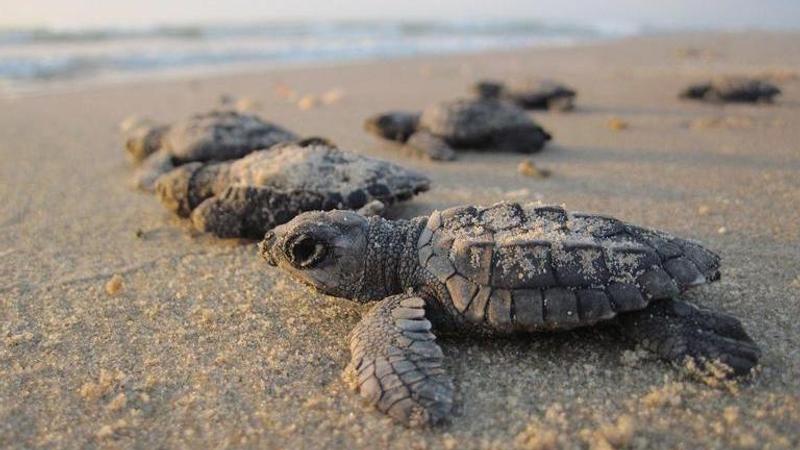Published 09:38 IST, October 30th 2020
Humans laying low, record number of Olive Ridley turtle hatchlings released in Mexico
Due to the reduced human activity during the coronavirus pandemic, record numbers of an endangered turtle species have hatched on a beach in northern Mexico.

Advertisement
Due to the reduced human activity during the coronavirus pandemic, record numbers of an endangered turtle species have hatched on a beach in northern Mexico. According to USA Today, the indigenous Seri community in Sonora state released over 2,250 baby Olive Ridley sea turtles into the Gulf of California. Usually, the community releases about 500 of the small creatures every year.
While speaking to a local media outlet, group coordinator Mayra Estrella Astorga said that this year has been one of the hardest for the community. She said that the unprecedented pandemic brought sickness, death and complicated the economic situation. However, Astorga added that in the middle of the tragedy, the ‘miracle happened’ which was the result of fewer fishing boats and tourists.
With restrictions on movements and with limits on fishing and tourism, the beach nests were not disturbed, which resulted in record numbers of Olive Ridley turtles. The endangered turtle species lays its eggs on the beaches of a number of Mexican states between May and September. The Olive Ridley is mostly found in tropical areas of the Pacific, Atlantic and Indian Oceans.
Classed as ‘vulnerable’
The species is, however, considered to be facing a high risk of extinction in the wild. According to the International Union for Conservation of Nature and Natural Resources Red List, the species have seen a 30 to 50 per cent reduction of global population size in recent years. In a bid to save the turtle from extinction, Mexico banned the capture of sea turtles in 1990. Additionally, there are also still penalties for anyone caught hurting them.
The Olive Ridley turtles are one of smaller of its kind and get the name from police green colour and its heart-shaped shell. They are classed as ‘vulnerable’ as the creatures are still under threat from crimes including poaching despite carious countries having laws in place to protect them.
(Image: @ComicClubUK/Twitter)
09:38 IST, October 30th 2020




